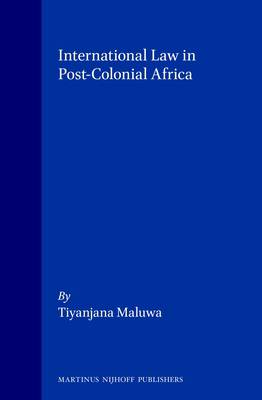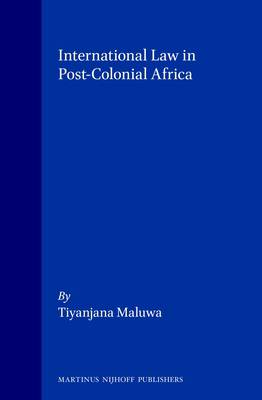
- Retrait gratuit dans votre magasin Club
- 7.000.000 titres dans notre catalogue
- Payer en toute sécurité
- Toujours un magasin près de chez vous
- Retrait gratuit dans votre magasin Club
- 7.000.0000 titres dans notre catalogue
- Payer en toute sécurité
- Toujours un magasin près de chez vous
Description
African States have contributed to the development of modern international law in various ways. This contribution can be assessed through an examination of the actual practice of these States in their interactions with each other, and with other States in the wider international community, on various matters which have a bearing on the creation of legal rules for the international community. Taken together, the case studies presented in this book demonstrate that, despite its apparent marginalization in the international system, Africa can stake a valid claim to being part of the on-going process of shaping new rules and principles of international law while strengthening existing ones. Some of the more important examples are: the broadening of the refugee definition and the principle of non-refoulement in the area of refugee law; the rights of access and transit to the sea and the concept of the exclusive economic zone in the law of the sea; the principle of uti possidetis; the concept of `peoples' rights', as distinguished from that of `human rights'; the very expansion of the traditional categorization of human rights to embrace the so-called third generation rights, such as the right to development; the Nyerere doctrine of State succession; and, in general, certain principles in the area of international fluvial law concerning the common management and utilization of shared watercourses. The discussions in this book are informed by the belief that post-colonial African States have tended to view the creation and application of international law as a historically engaged activity through which they can now empower themselves as part of the modern international community.
Spécifications
Parties prenantes
- Auteur(s) :
- Editeur:
Contenu
- Nombre de pages :
- 368
- Langue:
- Anglais
- Collection :
- Tome:
- n° 4
Caractéristiques
- EAN:
- 9789041110893
- Date de parution :
- 01-07-99
- Format:
- Livre relié
- Format numérique:
- Genaaid
- Dimensions :
- 155 mm x 235 mm
- Poids :
- 825 g

Les avis
Nous publions uniquement les avis qui respectent les conditions requises. Consultez nos conditions pour les avis.






